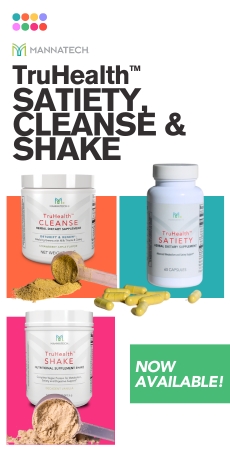
Men’s Health: 10 Essential nutrients
Do you get lost in a sea of essential vitamins at your local pharmacy? There seems to be a vitamin for everything, and deciphering what each nutrient does can be confusing. We get it. Vitamin shopping can be a lot. That’s why we’ve dedicated an entire blog to the topic. We’ll break down a list of essential vitamins that every man should know, giving you insight into the function and impact of each power-packed nutrient. So, without further ado, let’s dive into the 10 essential vitamins you’ll want to get to know once you’re done reading.
1. Vitamin A
It may start the vitamin alphabet, but it isn’t naturally produced by our bodies1. Luckily, it’s one of the most accessible vitamins to consume through food, which is great to know because it’s important to the health of two visible organs: the eyes and skin. The recommended dietary allowance of vitamin A for men is 900 micrograms (mcg).
• Helps Vision – Vision may seem like an open and closed case, but there’s much more to this function than meets the eye. Vitamin A uses light to penetrate our eyes, sending an electrical signal to the brain1. It also makes pigments for your retinas and moisture needed for your corneas1.
• Helps Immune System – When it comes to free radicals (pollution, chemicals, and other air pollutants), our body takes preventative measures to protect itself at all costs. One of those protective measures is vitamin A’s role in supporting white blood cells and mucus membranes found in your lungs, intestines, and urinary tract1. In this context, this nutrient helps combat toxins that may impact our well-being.
• Metabolism – What vitamin helps regulate carbohydrates, protein, and fat metabolism in metabolically active organs2? Vitamin A does, and this is where the metabolic magic begins.
• Clear complexion – Want clear skin? Vitamin A-rich foods have been said to minimize the appearance of acne, wrinkles, and age spots over time. Vitamin A consumption is important in helping your skin look healthy and radiant1. This skin that you’re in is the only one you’ve got. Why not take care of it?
Vitamin A enriched foods:
• Dairy products – Milk, butter, yogurt, and cream cheese contain vitamin A. If you’re not sure, double check the nutritional facts label for reference1.
• Eggs – One hard-boiled egg with yolk contains 75 mcg of the recommended daily amount for vitamin A. Only 825 mcg to go1.
Fruits and veggies the colors of the rainbow:
• Green, orange, and yellow – Spinach, kale, carrots, mangos, cantaloupes, and sweet potatoes are great sources of vitamin A.2
• Red – Tomatoes and red bell peppers are also enhanced with vitamin A.2
2. Vitamin B12
Vitamin B12 has a host of vital roles. It plays a part in cell metabolism, supports energy production and supports the nervous system. Your body absorbs vitamin B12 in two steps. The hydrochloric acid removes the B12 from the food in your stomach, then combines with a protein known as the intrinsic factor and is later absorbed by your digestive system3. B12 is present in some food, added to others, and is also available as a dietary supplement3.
These enriched foods can boost your vitamin B12 intake:
• Dairy products – The recommended dietary allowance of vitamin A for men is 900 micrograms (mcg). Vitamin B12 can be found in dairy products such as yogurt, milk, and cheese, to name a few3.
• Eggs – Whole eggs are winners in the nutrient department. This food also contains vitamin B123.
Eat in color :
• Green and yellow – Spinach and banana are two delicious foods rich in vitamin B123.
• Red – Kidney beans and strawberries are contenders for veggie and fruit popularity contests; they’re also rich in B123.
• Meat – Lean meats, turkey breast, tuna, salmon, clams, and beef liver all contain vitamin B12. Beef tacos, salmon, turkey, and tuna sandwich lovers rejoice!
• Fortified foods and bread – Some of your favorite fortified breakfast cereals, fortified (nutritional) yeast, and bread are great for B12 consumption.
Causes of a lack of B12
You can become deficient if you don’t regularly consume foods containing vitamin B12.
B12 deficiency is more common in men than women (the recommended dietary allowance of B12 for adults is 2.4 mcg), though researchers are unclear why. One hypothesis is that it could be linked to genetic variations2, but the key word here is hypothesis. Therefore, we believe it’s appropriate to give you all the information we know to provide a point of reference for later discussions you may have with your doctor.
3. Vitamin C
This essential nutrient is vital to iron absorption, growth, and development (the recommended dietary allowance of vitamin C is 90 milligrams (mg)). Your body can’t make vitamin C, and because it’s water-soluble, meaning that it dissolves in water, vitamin C can’t be stored by your body4, all the more reason, to include it in your daily diet, and this is why:
• Antioxidant – As an antioxidant, vitamin C helps to heal wounds and counteract your body’s reaction with free radicals by stimulating white blood cells4.
• Immune function support – Vitamin C is well known for its role in supporting a healthy immune system.
• The key to the collagen puzzle – Vitamin C can support the body’s natural production of collagen and can support bone health.
Vitamin C enriched foods:
• Fruits – Try vitamin C-enriched fruits such as kiwi, lemon, grapefruit, oranges, and strawberries.
• Vegetables – White potatoes, tomatoes, broccoli, brussel sprouts, cabbage, and bell peppers are all packed with vitamin C.
4. Vitamin D
It’s widely known for building and maintaining healthy bones. Without it, your body can’t absorb calcium, the main component of bone5. Vitamin D also helps support immune health and muscle function.. Unlike the previous nutrients, vitamin D isn’t widely found in many foods5. Vitamin D can also be absorbed through sunlight. The recommended dietary allowance of vitamin D for men is 15 mcg if under 70 years old. Men 70 years old and older have a recommended dietary allowance of 20 mcg9.
There are benefits to having higher vitamin D levels. Here are a few:
• Reproductive Health – Vitamin D supports reproductive health in males and is shown to be positively connected to sperm motility (the ability of your sperm to move through the reproductive tract)8.
• Helps to support muscle6 – Vitamin D can help contribute to the optimal functioning of muscles in males.
Causes of a lack of vitamin D
Many men are deficient in vitamin D. If you do not eat vitamin D-enriched foods, get enough sunlight or take vitamin D supplements, your body may not be getting enough.
Vitamin D-enriched foods:
• Fish: Salmon and other fatty fish like mackerel contain vitamin D.
• Fortified foods: Milk and fortified cereals are great ways to get vitamin D.
5. Vitamin E
As an antioxidant preserver and cellular health defender, vitamin E’s job is to help neutralize the free radicals (environmental toxins) that your body encounters daily. It also enhances our immune functions. The recommended dietary allowance of vitamin E for men is 15 mg10.
Vitamin E-enriched foods:
• Fruit – Mangos are a fan favorite when it comes to vitamin E-enriched fruits.
• Vegetables – Beet greens, collard greens, spinach, red pepper, pumpkin, and asparagus all contain vitamin E.
• Oils – Wheat germ, sunflower, safflower, and soybean are great oils when conscious of vitamin E intake.
• Nuts, seeds, and nut-derived products – Peanuts, sunflower seeds, almonds, and peanut butter are sources of vitamin E.
6. Ashwagandha
Ashwagandha, also known as Indian ginseng, is an herb that has been used in Ayurvedic medicine for centuries. The plant’s roots and berries are rich in bioactive compounds that have been shown to have a variety of potential health benefits.
The benefits of Ashwagandha:
• Promotes the mind and body’s feeling of normalcy – Ashwagandha is a powerful adaptogen, a substance that supports mood and helps the body better cope with stress11.
7. Folate
Also known as vitamin B9, folate can be found in many foods and can support cardiovascular health. The recommended dietary allowance intake of folate for men is 400 mcg13.
Folate (B9) enriched foods
• Fruits and fruit juices – Grapes, apples, pineapples, and their juices all contain folate13.
• Vegetables – Turnip greens, spinach, romaine lettuce, asparagus, brussels sprouts, and broccoli are included in folate-friendly foods13.
• Oils – Wheat germ, sunflower, safflower, and soybean oils are great for vitamin E13.
• Nuts, seeds, and nut-derived products – Peanuts and sunflower seeds are great examples of nuts containing folate13.
Other foods – Eggs, aquatic foods (lobster), animal proteins (meat and milk), and beans all contain folate13.
8. Omega-3 Fatty Acids
Our bodies can make most of the fats it needs, but omega-3 fatty acid is not one of them; you must get them from food14. Omega 3s are significant because they support cardiovascular and brain health14. The recommended dietary allowance of omega-3 for men is 1.6g14.
Fish is a great way to get your omega nutrients. Here’s a list of seafood options that are packed with omega 3s:14
• Anchovy, catfish, clams, cod, crab, fish sticks, halibut, lobster, mahi mahi, mussels, oysters, pollocks, salmon, sardines, scallops, shrimp, swordfish, trout, and tuna.
9. Magnesium
Available in antacids and laxatives, magnesium builds proteins for solid bones, , supports healthy nerve functions, and helps muscles contract around the heart so that the heart beats steadily. The recommended dietary allowance of magnesium for men is 400 – 420 mg daily15.
Try this magnesium-rich these foods:
• Fruits – If you want to increase your magnesium intake with fruit, bananas, and raisins are a great place to start15.
• Vegetables and grains – Black and kidney beans, white potato with skin, cooked spinach, and oatmeal are all magnesium enriched15.
• Nuts, seeds, and nut-derived products – Peanuts, peanut butter, almonds, cashews, and pumpkin seeds contain magnesium15.
• Dairy and chocolate – Milk, yogurt, and dark chocolate all contain magnesium15.
• Meat – Beef, salmon, and poultry put the “m” in magnesium15.
10. Zinc
Only available to our bodies in small amounts (called a trace mineral), zinc is a major contributor in immune health.— The recommended dietary allowance of zinc for men is 11 mg16.
Zinc-enriched foods:
• Grains, beans, nuts, and fortified products – Nuts, fortified breakfast cereal, and whole grains all contain levels of zinc16.
• Meat – Eating beef, poultry, and pork are three tasty ways to introduce zinc into your diet16.
Vitamins and nutrients are essential to optimal health, especially those we can’t produce ourselves. They can help reduce deficiencies and improve our physical and mental well-being. Invest in yourself by consuming more nutrient-rich foods and taking the proper supplements. You won’t just reap the benefits of this decision in the present, but this small gesture of self-care can yield positive effects for years to come.
Sources
1 Vitamin A. Cleveland Clinic
2 Vitamin A. Harvard T.H. Chan School of Public Health
3 Vitamin B12. National Institutes of Health
4 Vitamin C. Harvard T.H. School of Public Health
5 Vitamin D. Mayo Clinic
6 The effects of vitamin D supplement. Journal of the International Society of Sports Nutrition
8 The role of vitamin D in male fertility: A focus on the testis. National Library of Medicine
9 Vitamin D. National Institutes of Health.
10 Vitamin E. Harvard T.H. Chan School of Public Health
11 Ashwagandha. Healthline
13 Folate. Harvard T.H. Chan School of Public Health
14 Omega 3 Fatty Acids: An essential contribution. Harvard T.H. Chan School of Public Health.
15 Magnesium. Harvard T.H. Chan School of Public Health
16 Zinc. Harvard T.H. Chan School of Public Health



















